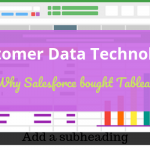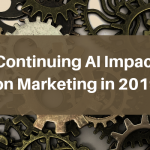
How the Facebook Meltdown Affects Marketers
3 Minute Read
July 26th 2018 was historic for the stock market and for Facebook. Its stock declined about 20% for a market capitalization loss of $113 billion in one fateful day. We’re not surprised. As marketers and trend watchers, we already noticed the early signs of a Facebook meltdown and pondered the impact for marketing. It’s simple: declining ad effectiveness due to declining user engagement. This is how the real Facebook meltdown affects marketers.
Let’s take a few anecdotal stories:
Positive Voices grew their Facebook following dramatically to 100,000 followers in a year. They did it with great content and adverting. When they hit year 2 this spring, the same techniques grew them another 7%. Only 7%
At an early July dinner party of all marketers, the topic came up: Is Facebook working for you the same way? The unanimous answer is that ad efficacy for the price was changing.
Why did I even ask the question in the first place?
Changing Habits of Facebook Users
It’s because I noticed a change in my own behavior with fewer log-ins. So how had my own habits changed? And when I did go to Facebook, why did I go?
First, tired of their constant, pesky notification emails, I unsubscribed from them. This pretty much made Facebook out of sight, out of mind. Second, Facebook’s privacy issues lead me to install the Facebook container in my Firefox browser. Oh, and delete the Facebook app from my phone (where I never used it anyway).
Third, when I do go to Facebook, it is for a defined purpose. It’s to manage an ad campaign, a post for the DC Marketing Tech Talks community, or to message someone.
I rarely go for purely personal reasons now. I spent only a minute or so scrolling the updates (or pointless political rants) from family and friends.
And last, I have not really missed Facebook.
I’ve been too busy with other stuff. With life in the real world, summer activities, and a robust economy.
What does this all mean? How does the Facebook meltdown affect marketers?
The short answer is: not much for now. Facebook will still get a good chunk of the ad budget. This is because it’s tough to see where its disruption will come from in the short-term. What marketers love about Facebook is the ability to specifically target desired audiences. Marketing channels are so fragmented now and Facebook was almost too good to be true – a new form of broadcast advertising.
So what else will do this?
New Ways to Target: How the Facebook Meltdown Affects Marketers
In the medium-term, there will be growth in ads that use IP targeting, GEO targeting and location-based mobile targeting technology. And because they deliver the same benefit – hyper-local targeting.
IP targeting enables marketers to target users at specific household or businesses. Think of Account-based Marketing, also called ABM – this is the central technology behind it. It works by matching IP addresses to names and street addresses. When it does this, it then displays your digital ad only to those people via visited websites or streaming videos on TV.
This way, ads reach the exact target household and with no wasted budget or worthless impressions. Furthermore, IP targeting does not use cookies and can’t be deleted.
While home-based Virtual private networks (VPNs) block IP addresses – and then your ads – few households currently use them. So you’ll reach the majority of households you want to reach as those targeted household occupants access content from the Internet.
Geo-targeting is similar to IP targeting. It uses multiple IP addresses to target an area. Both allow marketers to target specific households to send very relevant, hyper-local online or streaming ads.
Internet of Things Will Lead to New Ways to Target Consumers
Think ahead and we see the Internet of Things looming. To marketers, any connected device is a potential set of eyeballs to see advertising. So targeting will hugely change again.
So we see how the Facebook meltdown affects marketers as an ordinary course of technology development. Facebook is not new anymore. User engagement is unlikely to recover to previous levels. So to marketers, ad dollars spent on Facebook are not likely to be as effective for the price as they once were.
Marketers will then re-deploy ad dollars to other ad networks, like new social media channels yet to arise, and to advertising channels.
And finally, IP targeting and data management platforms driving the account-based marketing revolution will hit home, too.
Hey! Friends help friends grow by hitting those share buttons!








